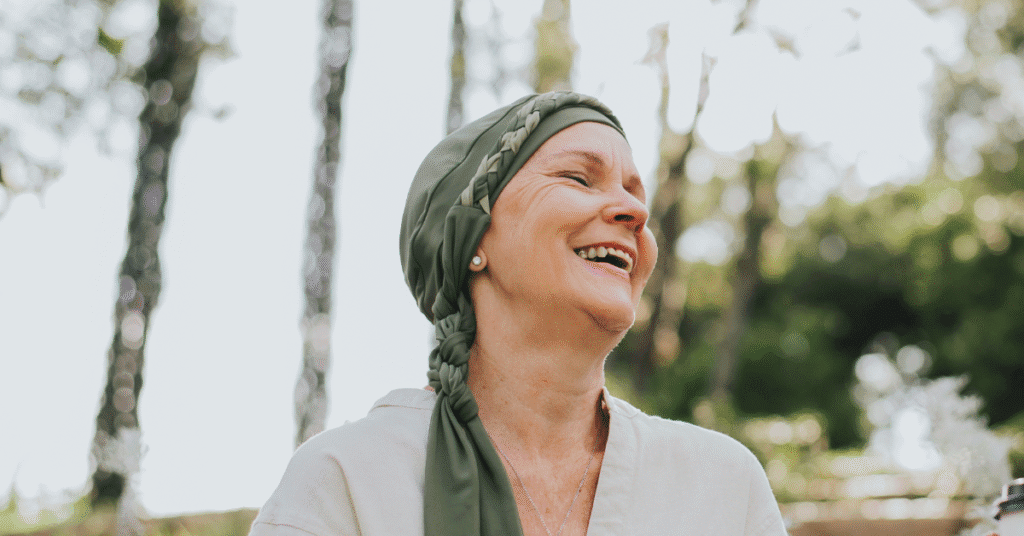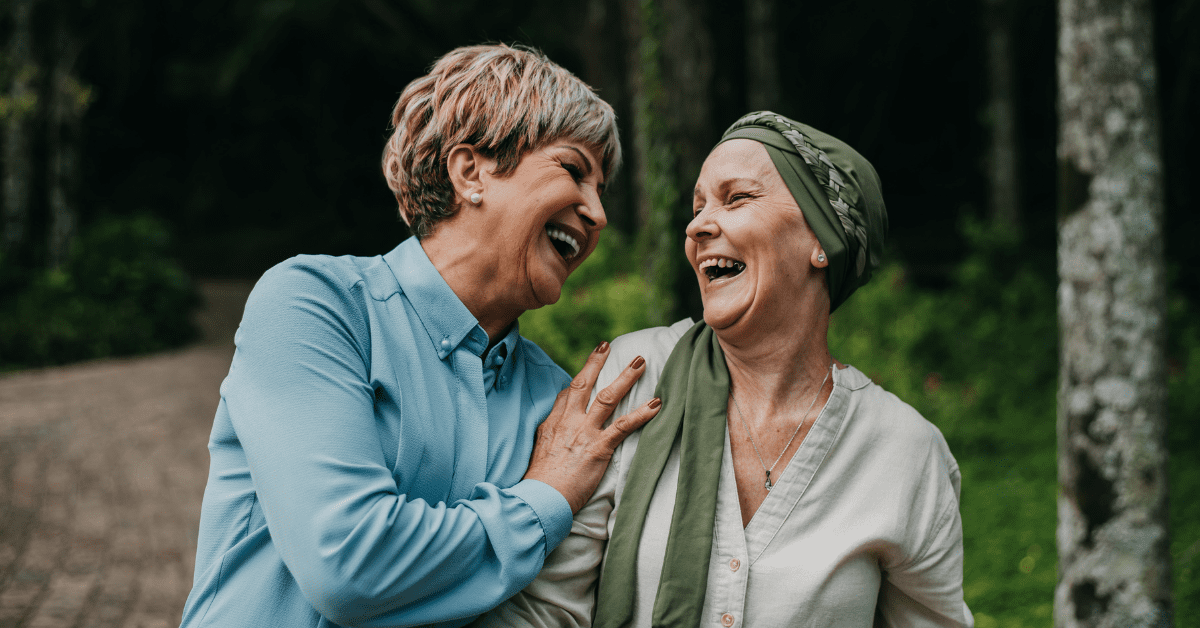June is a month marked not only by the arrival of summer but also by a powerful tribute to human strength, determination, and hope. It is National Cancer Survivor Month, a time dedicated to celebrating the millions of individuals who have faced a cancer diagnosis and come out the other side as survivors.
June holds even more profound meaning for me: it’s my birthday month. Each year, as I celebrate my birth, I also celebrate my rebirth as a thyroid cancer survivor. This personal connection makes National Cancer Survivor Month especially important to me, symbolizing resilience, renewal, and the gift of life.
As someone who has personally walked this path, I understand the deep impact cancer can have on every aspect of your life. As a thyroid cancer survivor, my journey, like so many others, was filled with fear, uncertainty, and ultimately, resilience. Sharing this from both a personal and broader perspective allows me to connect deeply with the stories of other survivors and to honor the incredible strength that defines us all.
The Meaning of Survival
Surviving cancer is far more than reaching remission or completing treatment. For many, survival begins the moment they hear the words, “You have cancer.” From that point forward, every scan, treatment, side effect, and emotional hurdle becomes part of the survival story. Cancer doesn’t just affect the body; it impacts the mind, the emotions, and the spirit.
When I was diagnosed with thyroid cancer, my world changed in an instant. Suddenly, every plan, every dream, every routine was overshadowed by this new reality. The days that followed were a blur of doctor appointments, tests, and difficult conversations. And yet, within that chaos, a quiet resolve began to grow. I realized that surviving cancer wasn’t just about physical healing—it was about reclaiming my identity, my strength, and my voice.
Survivors often speak of life “before cancer” and “after cancer,” recognizing the profound transformation the experience brings. Many reevaluate their priorities, careers, relationships, and purpose. Some discover new passions or reengage with old ones, driven by a fresh appreciation for life. But this transformation is rarely easy. It comes with physical pain, emotional strain, and an often-lonely road through uncertainty.
The Silent Struggles
While survivors may outwardly seem strong and resilient—and indeed, they are—there are silent struggles many face long after the cancer is gone. Fatigue, chronic pain, and the long-term side effects of treatment can linger for years. Emotional tolls like anxiety, depression, and fear of recurrence are common, yet not always visible to the outside world.
I remember vividly the anxiety and stress that come with follow-up scans and waiting for test results—that pit in your stomach as you wonder if your body has betrayed you once again. I’ve also felt the dissonance between how others see me and how I feel inside. People often say, “You look great! You must be feeling better,” not knowing the quiet battles I still face daily.
Many survivors speak of the anxiety and stress related to follow-up scans as a constant reminder that cancer could return. Others describe the challenge of reintegrating into everyday life, dealing with career interruptions, insurance hurdles, or even shifts in how friends and family perceive them. For young survivors, the journey can include dealing with infertility, missed milestones, and the challenge of finding peers who truly understand.
Strength Through Community
Despite these challenges, the cancer survivor community is a remarkable testament to human resilience. Support groups, survivor networks, and online communities have become lifelines for many. In these spaces, survivors share their stories, offer advice, and provide comfort to those just beginning their journey.
These connections often become powerful friendships built on empathy and shared experience. For many, helping others becomes a key part of their healing. Survivors often become advocates, fundraisers, and volunteers, determined to raise awareness and pave the road for those who follow.
I’ve found tremendous strength in connecting with others who understand this path. Whether through social media, support groups, or just one-on-one conversations, something is healing about sharing your truth and hearing someone else say, “Me too.”

Stories That Inspire
Note: The stories below are inspired by the real experiences of countless survivors I’ve read about, listened to, and connected with through survivor forums, documentaries, and support groups. While the individuals mentioned are fictional composites, their journeys reflect the authentic emotional and physical challenges many survivors face, including my own.
Take, for example, a mother of three who was diagnosed with breast cancer at 32. She endured chemotherapy, surgery, and radiation while still managing the daily needs of her young children. Today, she runs marathons, gives motivational talks, and mentors newly diagnosed patients.
Or consider the story of a teenager who faced leukemia just as he was preparing to graduate from high school. While his friends were picking out college dorms, he was learning about blood counts and bone marrow biopsies. Today, he is a doctor working in pediatric oncology, using his experience to help others.
Then there are countless others—fathers, daughters, grandparents, athletes, artists, business leaders, and teachers—who, despite the disruption cancer caused in their lives, continue to lead, inspire, and thrive.
And then there’s me. A survivor who never imagined cancer would be part of my story. But it is, and now I carry that title with pride—not as a label of what I endured, but as a badge of the strength I discovered within myself. I refer to my scar on my throat as my “badge of honor”.
Life After Treatment
The end of treatment is often imagined as a finish line, but for survivors, it’s usually just another beginning. Adjusting to “the new normal” can be unexpectedly difficult. There is often an expectation, both internal and external, to “bounce back” quickly. But healing takes time.
Some survivors experience survivor’s guilt, wondering why they lived when others did not. Others feel pressure to be perpetually positive, even when they’re still dealing with real pain and fear. Raising awareness about these realities helps dismantle the stigma and opens the door to better mental health support and understanding.
Physical rehabilitation, ongoing screenings, and continued medication may become permanent parts of life. But so too does a renewed sense of purpose. Survivors frequently report living more intentionally, cherishing relationships, and savoring life’s small moments.
Personally, I came to see my cancer as a “blessing in disguise.” It gave me a deeper appreciation for life and inspired me to live with greater purpose and intention. Today, I’m in the best health of my life—because I made the decision to prioritize my well-being and take control of my healing journey.
The Role of Caregivers and Families
Behind every survivor is a network of supporters who also deserve recognition. Caregivers, whether spouses, parents, siblings, or friends, endure their own emotional and physical tolls. They provide comfort during chemotherapy sessions, keep track of medications, manage meals, and often put their own lives on hold.
Family members ride the rollercoaster of fear and hope alongside the patient. Their strength is vital to the healing process, yet their contributions can go unnoticed. National Cancer Survivor Month is also a time to thank and support these unsung heroes.
I was blessed with a circle of loved ones who stood by me through every step. Their faith, patience, and love were as crucial to my recovery as any medical treatment. They reminded me I was never alone.

Moving Forward as a Society
As we honor survivors, it’s crucial to remember the work that still lies ahead. Advances in treatment have significantly improved survival rates, but disparities in care persist. Access to early detection, cutting-edge therapies, and follow-up support varies based on geography, income, and race.
There is also a need for greater investment in survivorship care. Mental health support, vocational rehabilitation, and long-term medical monitoring must be recognized as essential components of post-cancer care. Employers, healthcare systems, and policymakers all have a role to play in ensuring that survivors are not forgotten after their last treatment.
Raising Awareness and Inspiring Action
National Cancer Survivor Month is an opportunity not just to celebrate, but to educate. It is a time to elevate survivor voices, encourage screenings, and fund research. It’s a time to share stories on social media, participate in fundraising events, and reach out to loved ones affected by cancer.
As a thyroid cancer survivor, I’ve learned that sharing our stories is one of the most powerful things we can do—not only to heal ourselves but to uplift others. When I was first diagnosed, I felt a wave of isolation and fear that seemed insurmountable. But as I opened up about my journey—through the surgeries, the uncertainty, the slow climb back to wellness—I found connection, strength, and even purpose. Sharing my experience helped me reclaim power over a narrative I didn’t choose, and it reminded others that they’re not alone.
If you know someone who has faced cancer, I urge you to listen intently. Your presence can be a lifeline. And if you can contribute in any way—by advocating for better care, supporting research, or simply showing up—you’re not just helping one person. You’re helping all of us build a future filled with hope, compassion, and possibility.
Conclusion
As National Cancer Survivor Month, June stands as a beacon of hope and a call to action. It reminds us that while cancer may mark a chapter in someone’s life, it does not define their entire story. Survivors show us what it means to live fully, love deeply, and fight bravely. They teach us about the power of community, the importance of compassion, and the strength of the human spirit.
As a thyroid cancer survivor, I am living proof of that strength. And I carry with me the stories of others—those still fighting, those we’ve lost, and those thriving today. Let us honor them—not just this month, but always. Let us continue to build a world where cancer is not a death sentence, but a challenge that can be met with courage, support, and the unwavering belief in tomorrow.






0 Comments